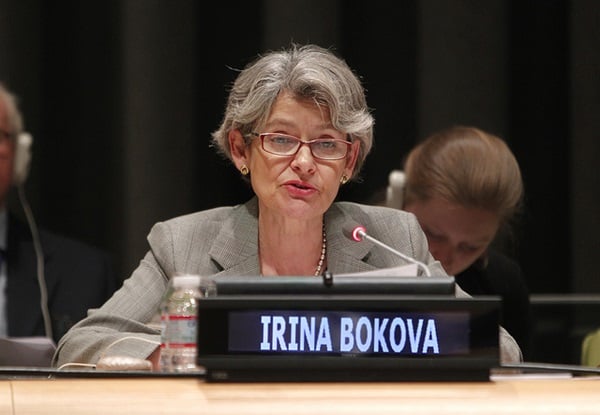Law & Politics
UNESCO Chief Decries ISIS “Cultural Cleansing” in Erbil Speech


Josh Niland

UNESCO Director-General Irina Bokova visited the northern Iraqi city of Erbil last week to denounce what she called “cultural cleansing” on the part of ISIS, according to The Art Newspaper.
Bokova, who in past statements has characterized the militant group as intolerant and bent on cultural destruction in Iraq and Syria, accused ISIS of using “Nazi methods” in their on-going efforts to establish a caliphate across the region. The purpose of Bokova’s remarks was to underscore the necessity of action, which she said is imperative to protecting the cultural heritage of ethnic enclaves that have come under threat since the group consolidated power over the summer.
“We have to act, we don’t have time to lose,” Bokova said, “because extremists are trying to erase the identity, because they know that if there is no identity, there is no memory, there is no history, and we think this is appalling and this is not acceptable.”
The statement came just days before the group destroyed yet another mosque in the Kurdish city of Kobane, where fighting between ISIS militants and Kurdish Peshmerga troops has reached a climax following four weeks of combat that left at least 500 dead. “You cannot rebuild the traditions and heritage of a culture—when it is destroyed it is destroyed forever,” Bokova said.
“Either [the minority groups] conform to [the Islamic State’s] views of religion or belief or they have to disappear. I don’t remember anything like that in contemporary history,” she added. “This is a way to destroy identity. You deprive them of their culture, you deprive them of their history, their heritage, and that is why it goes hand in hand with genocide. Along with the physical persecution they want to eliminate—to delete—the memory of these different cultures.”